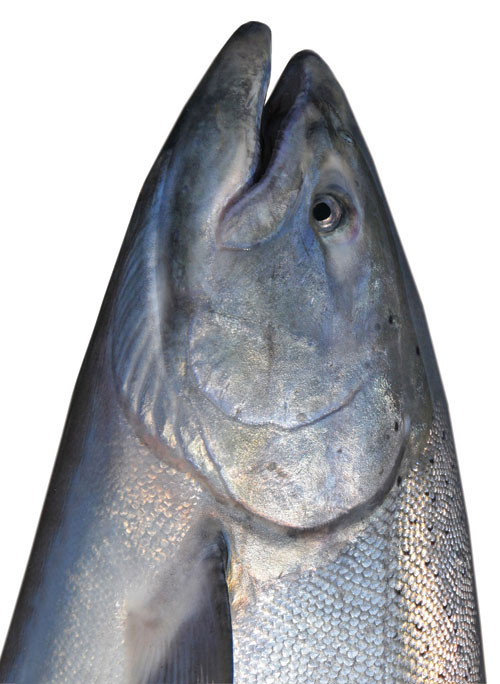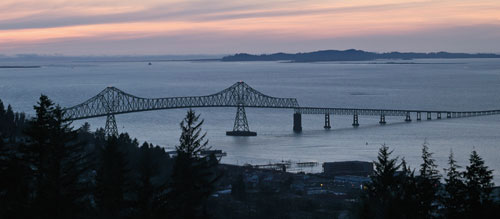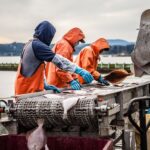 A coalition of sport fishermen and related businesses is luring legislators to ban commercial gillnet fishing in the main stem of the lower Columbia River below Bonneville Dam.
A coalition of sport fishermen and related businesses is luring legislators to ban commercial gillnet fishing in the main stem of the lower Columbia River below Bonneville Dam.
 |
SB 736 would ban commercial gillnet fishing in the main stem of the lower Columbia below Bonneville. |
A coalition of sport fishermen and related businesses is luring legislators to ban commercial gillnet fishing in the main stem of the lower Columbia River below Bonneville Dam.
Proponents of Senate Bill 736 say it would limit harm to endangered wild fish and non-targeted species, while opening new opportunities for recreational angling. “Sport fishing provides a softer touch and a better economic return,” says Liz Hamilton of the Northwest Sportfishing Industry Association.
The law would not ban commercial fishing in the lower Columbia. Rather it would force non-tribal gillnetters to target hatchery fish in “terminal” areas such as Youngs Bay and Blind Slough. Still, Hobe Kytr of Salmon For All says the new law would effectively put an end to one of the state’s longest-running industries. “There isn’t room in the select areas for anywhere close to a full-fleet fishery,” he says. “The high-value fish are in the main stem.”
Commercial fishing on the lower Columbia was a major moneymaker in the early days of statehood, before over fishing, dam-building and urbanization greatly reduced catches. Most of Oregon’s 150 or so remaining non-tribal gillnetters head to Alaska to earn their real money.
In 2010, commercial fishermen caught 1.4 million pounds of Chinook salmon, 808,000 pounds of Coho salmon and 149,000 pounds of sturgeon in the lower Columbia, a combined haul worth about $6 million to fishermen.
Hamilton says the best way to protect wild fish and boost the economy would be to force a shift to recreational harvest over commercial. “We average eight days [on the water] per fish caught,” she says.” “That’s a lot of money spent for each fish taken home.”
Kytr counters that limiting commercial fishing opportunities would also limit funding for salmon recovery, since the two are connected legally. Consumers would also lose access to main-stem Columbia spring Chinooks, renowned for their rich taste and omega-3 fatty acids.
Oregon’s major environmental groups have stayed out of the battle. So have the four Native American tribes with treaty fishing rights to waters above Bonneville Dam. A similar bill targeting gillnetters several sessions ago failed to become law.


